Analysis: Faster progress needed on Transition
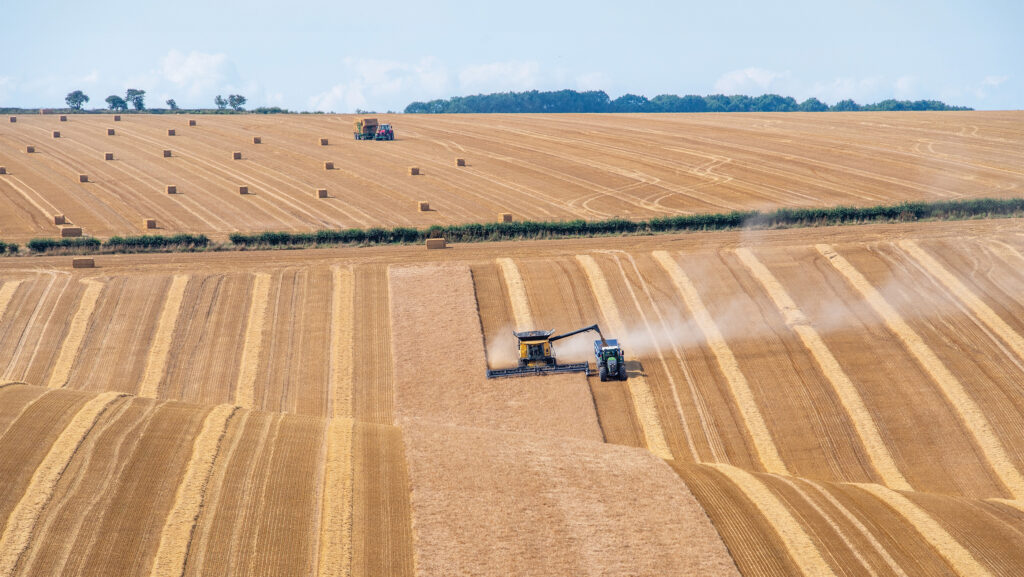 © Adobe Stock
© Adobe Stock The fourth annual Farmers Weekly Transition survey – carried out by Macleod Research – provides a detailed picture of UK farming as it transitions from farm support payments to alternative funding streams, post-Brexit.
More than 600 farmers from all types and sizes of farm business took part during spring 2024 and aired their views on issues such as costs, productivity, policy, viability and government support schemes.
See also:Expanded SFI 2024 offer: What it means for arable farmers
Basic payments
Although direct support in England will end completely in less than three years, farmers still continue to rely heavily on Basic Payment Scheme (BPS) money.
More than nine out of 10 farmers (91%) received some funding in the 12 months from May 2023 – a statistic unchanged from year-earlier results.
On average, BPS support still accounts for more than a quarter (27.8%) of UK farm income.
In Scotland and Wales, where farm policy changes are being made at a slower rate, almost one-third of income – 32% in Scotland and 31% in Wales – is still through government support.
For a small proportion of all UK farms (6%), BPS made up three-quarters or more of their total revenue.
However, the general picture for England shows the value of payouts is declining in line with government policy.
This is clearly represented by the growing proportion of farmers slipping down into the lowest bracket of subsidy cheque values.
In 2024, the survey shows two-thirds of farms (65%) earned between £1 and £29,999. But back in 2021, at the outset of the Transition period, far fewer individuals (52%) were in this lowest payment group.
The majority of farms (74%) categorised as livestock only fell into this category while another feature of this bracket was the number of smaller- scale farms.
Almost nine out of 10 farms under 99ha were in this lowest payment level.
Numbers receiving higher value cheques in 2024 were correspondingly lower with 13% in the £30,000 to £49,999 category, and 12% earning between £50,000 and £150,000.
At the start of the Transition period in 2021, a total of 40% of farms were in these two higher payment brackets.
Averaged across all regions, farms are seeing lower payments. In England, the average annual payment has dropped to £23,204 from £26,288 in 2023, and from £51,032 in 2021.
Scotland saw BPS incomes decline to £22,562 from £25,285 last year, and from £61,095 four years ago, while Welsh farmers reported their support payments were just £9,271 in the 12 months to May 2024.
The figure for Wales is just two-thirds of the year-earlier level at £14,055, and only 30% of the £30,000 Welsh farmers received four years ago.
Future viability
Dwindling financial support is having an effect on farmer confidence.
More than three-quarters (78%) remain either “fairly” or “very” concerned about how they will replace lost revenue from support.
The figure is broadly consistent with previous years, which show 80% held this level of concern in both 2023 and 2022, and 78% in 2021.
One in five farmers and growers could not yet tell how serious the situation would be for their businesses.
Only 4% said they were confident enough that they were “not at all concerned” about their future viability.
More than half (56%) forecast it would be difficult to survive, while another 25% of farmers and growers stressed that survival could only be achieved with great difficulty.
Figures from concerned farmers have remained virtually unchanged since the first Transition survey report four years ago.
The proportion of farmers and growers who responded relatively optimistically to the question on future viability has increased after two lower years from 10% in 2023, and 9% in 2022, to 14% in this year’s poll.
The 14% believed they could now survive fairly easily.
Efforts to change
The continuing high level of concern and the diminishing time period left until support payments are reduced or wiped out have seen an uptick in the number of farms that are taking action to secure their futures.
Last year, almost one-third (30%) of farmers in the UK were still to embark on the transition to life after BPS.
This proportion has dropped to 22% who are yet to begin making preparations. The question, asked across the UK, threw up some important regional differences in responses.
In England, 78% of farmers have already made changes, up from 76% last year and 65% in the first annual survey.
In Scotland, where the government has pledged to continue providing support payments, 59% of farmers have put measures in place to protect their future viability.
That is a marked increase from the 2023 survey, which recorded just 40% had made changes.
In Wales, responses to policy changes have been slower – there is virtually no year-on-year change, with 52% in 2024 compared with 51% in 2023.
Strategies and efficiency
Of the farm businesses that have begun making preparations, most are investigating off-farm income (37%), boosting productivity (35%) or starting a new enterprise or diversification (34%).
Farmer numbers eyeing productivity have dropped from 41% last year, and diversification from 39% in 2023.
However, there was a significant difference in age groups, with 53% of farmers under 44 years still looking to boost productivity.
The figures further revealed that almost 60% of farms already had some form of off-farm income – a figure that is consistent with the past two years, but markedly up on 2021 when half had an off-farm income.
Looking in more detail, the income source is most likely to be an off-farm job or employment, with one in five responses (21%) saying they were employed in roles such as contracting or consulting.
There was a notable difference between age groups picked up in this sector.
More than one- third (34%) of farmers who were 44 years old and below had off-farm jobs compared with just 10% of respondents aged 65 and over.
Smaller-scale farms, under 99ha, also had a higher proportion at 30% in outside work.
Efficiency
Despite the high level of concern over the future, more than eight out of 10 farm managers believe their units are run efficiently – a response that is broadly in-line with previous surveys – 84% in 2024 compared with 85% in 2023.
Within this overall bracket, about 68% suggested a “fairly efficient” level of production, and 16% recorded their units were running very efficiently.
Across the regions, there were stark differences. In Scotland, 97% felt their units were running efficiently – a hike on 2023 when the figure stood at 82%.
In Wales, by contrast, just 71% suggested their units were running efficiently, which was a drop from 84% last year.
It may simply be due to a lower base of responses on this question from the devolved regions, says survey analyst Heather McLeod.
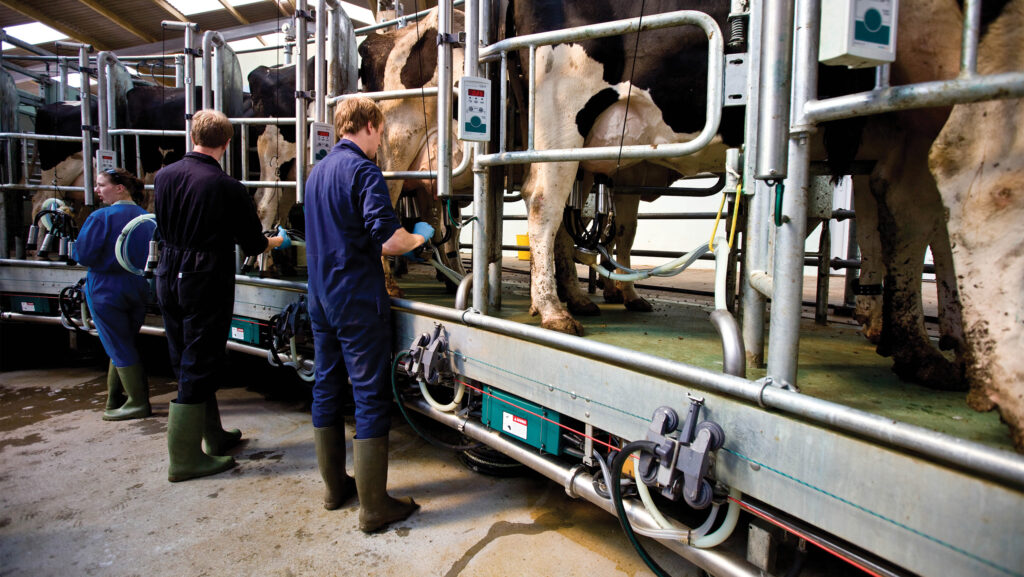
More than eight out of 10 farm managers said their units were run efficiently © Tim Scrivener
Environmental measures
The number of farm businesses declaring they have not taken part in, and will not consider, carbon footprinting remains high.
Overall, two out of five farms – the same as 2023 (40%) and an increase on the 34% prior to that – suggested they would not engage in carbon assessments in the short or long term.
But the number of businesses that have already carried out an assessment has risen from 14% in 2021 to 23% in this latest survey, and there is a block of 37% of farms which aim to carry out assessments sometime in the future.
The uptake in carbon footprinting varies significantly between regions, with the highest proportion in Scotland (44%), where the government-supported National Test Programme is well under way. In England (22%) and Wales (24%), far fewer have engaged.
Meanwhile, the number of farmers in carbon-capture schemes remained consistently and extremely low at 3%.
Just 2% belong to a carbon credit trading scheme as a wait-and-see approach to the still developing market continues to affect engagement.
Other environmental measures appeared to be more appealing to farm businesses.
Encouraging biodiversity and wildlife topped the list for engagement, with 31% already receiving some reward, and a further 52% keen to become involved.
Far fewer were involved in other measures. Only 8% were part of schemes to provide clean and plentiful water or mitigation of climate change effects.
In both of these categories, however, 62% of respondents said they would like to become involved.
Protection from pollution saw the highest response from those wanting to be involved at 69%, although just 6% were carrying out work for such schemes.
Clean air was another category that was peaking interest at 64%, but, again, only a small number (2%) were so far doing the work.
In England, farmers were quizzed about government environmental support schemes as the Environmental Land Management (ELM) scheme was split into the Sustainable Farming Incentive (SFI), Landscape Recovery and Countryside Stewardship schemes.
Overall, there has been a sharp increase in interest, measured by the declining number of farmers who said they did not want to be involved in any scheme.
In 2024, just 12% said they would not join a scheme compared with more than one-quarter (27%) a year ago.
This was driven by an upsurge in interest in the SFI scheme. In 2023, farmers struggled to obtain information on how the scheme would pan out, and just 49%, down from two-thirds in 2022, wanted to be involved.
However, the 2024 survey revealed this had jumped to 80% of farmers. The increase followed the government’s announcement of improved measures earlier in the year.
Attitudes to government farming policy
Contentment with government policy makes grim reading for civil servants and politicians across the UK.
Overall, just 5% said they were happy with their government’s long-term vision for farming.
That is a marked improvement on the 2% recorded in the 2023 survey, but there were significant regional variations.
In England, the improved communication on SFI plans led to an increase in satisfaction to 6%.
But Wales and Scotland produced satisfied responses from just 3% of farmers – a similar level to the 2023 survey.
The discontent was further underlined by poor responses on available information and government policy.
Despite a considerable improvement on last year’s figures, where 88% of UK farmers said they lacked sufficient information to progress, three out of four still felt there was not enough concrete data to go forward with their transition plans.
The improvement was driven by England’s farmers alone, where numbers of dissatisfied farmers dropped to 71% from last year’s 87%.
Away from England, the figures spell out a dismal message for the devolved governments.
In Scotland, 94% of farmers – the same percentage as last year – said they still lacked information to safeguard the future of their business.
Welsh farmers were similarly disenchanted with their government, and 93% said they had insufficient guidance to go forward – only a slight improvement on the 2023 result, which indicated 97% were discontent.
Across the UK, it was carbon storage where government policy fell down, with 84% of farmers and growers needing more guidance.
Only slightly better was air quality (73%) and cultural heritage (69%). Water quality (62%), public access and biodiversity (56%) information also drew negative responses.
Uncertainty over policy combined with the loss of the BPS meant less than half (45%) of farmers and growers believed their businesses were sustainable in the long term.
That figure has changed little since last year at 43%, but is well down on the 54% recorded in the first Transition survey in 2021.
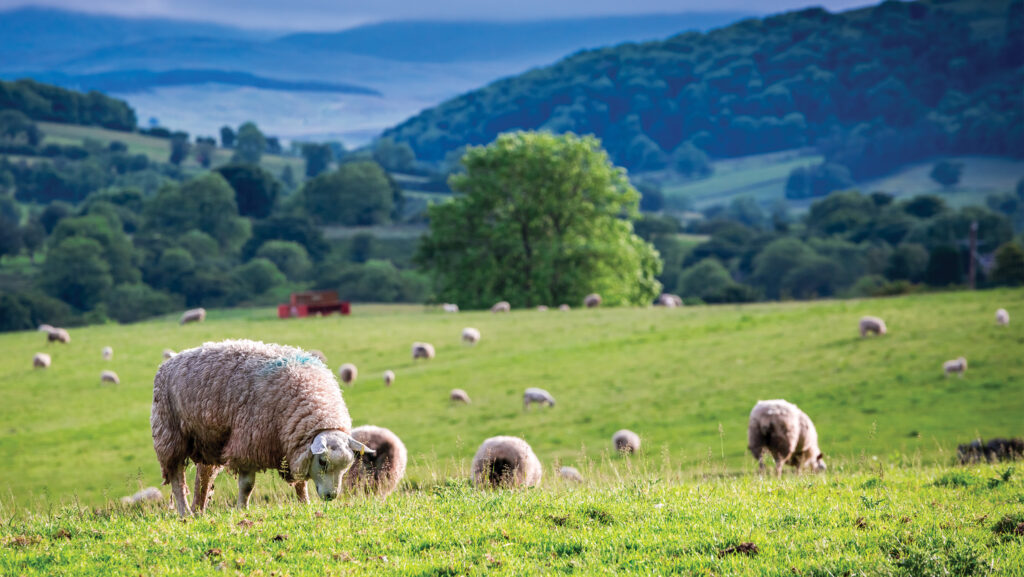
Profitability was blamed as the main hurdle to sustainability © Adobe Stock
Roughly one-third of respondents were unsure about the sustainability of their farming practices, but one-quarter (24%) believed their units were definitely being farmed unsustainably.
There was little difference across the regions, with 49% of farms in Wales farmed sustainably and 44% of farmers and growers in Scotland responding positively.
The main hurdle preventing an improvement to sustainability was poor profitability, named by 47% of farmers and growers.
But this was closely followed by a lack of government support (45%) high-input costs (44%) and production costs (42%).
More than one-third (36%) blamed an uncertain future, and an identical percentage put forward low-cost food as the reason for a lack of sustainability.
Other issues cited were planning obstacles, price volatility, interest rates, imported food and climate change.
Top 10 demands for government policy
- Food production and security supported
- Better information on long-term policies
- Fair prices for farm produce
- An end to cheap, poor-quality food imports
- Reinstatement of BPS
- Clarification of scheme rules
- Closer consultation with farmers
- Basic income for food producers
- Less interference with production
- Clampdown on supermarket buying power
Sustainability
Uncertainty over policy combined with the loss of the BPS mean less than half (45%) of farmers and growers believe their businesses are sustainable in the long-term.
That figure has changed little since last year at 43% but is well down on the 54% recorded in the first survey, in 2021.
Roughly a third were unsure about the sustainability of their farming practices but a quarter (24%) believe their units were definitely being farmed unsustainably.
There is little difference across the regions with 49% of farms in Wales farmed sustainably and 44% of farmers and growers in Scotland responding positively.
The main hurdle preventing an improvement to sustainability was poor profitability, named by 47% of farmers and growers. But this was closely followed by a lack of Government support (45%) high input costs (44%) and production costs (42%).
More than a third (36%) blamed an uncertain future and an identical percentage put forward low-cost food as the reason for a lack of sustainability.
Other issues cited were planning obstacles, price volatility, interest rates, imported food and climate change.
Survey respondent comments
- “As a farm adviser, I can categorically say there is not enough support for farmers to help them improve their farm business during the current changes. The government are really letting down a whole industry.”
- “It’s difficult to become more sustainable when the future of farming is so uncertain.”
- “Farming incomes have been left in the dark ages. The government needs to radically change its farming policy.”
- “As a small farm, even to afford the basics – like a shed – is now impossible.”
- “Bring back direct payments to keep farmers farming, and level the competing advantage overseas farmers have with access to our markets.”
- “Farm prices should be high enough to support the food we produce and provide a standard of living equal to government minimum wages.”
- “Make a clear commitment to food security. Make supermarkets more accountable. Stop importing non-farm assured products. Stop greenwashing.”
- “Make all imports comply with our standards so we are on a level field.”
Survey comments
Survey analyst Heather Macleod says while more farmers are preparing for life without the Basic Payment Scheme, there remains a high level of concern about the future.
The lack of clarity on government policy and new funding streams is creating uncertainty. This is holding back many farmers, who are reluctant to sign up to carbon schemes and make large-scale change on their units.
She says where information has been better – for example, the Sustainable Farming Incentive scheme in England – farmers have shown a willingness to get involved. Others are looking to off-farm income to help.
The finding that six in 10 now have an off-farm income is surprisingly high and shows the level of concern over maintaining a profitable future from farming alone, says Heather.
Michael Lee, deputy vice chancellor, Harper Adams University
The latest FW Transition survey highlights the need for faster progress which must be much quicker, says Prof Michael Lee.
Although the trend is for a greater adoption of carbon benchmarking and the Sustainable Farming Incentive, this appears to be primarily driven by private incentivisation via supply chain schemes or necessity, rather than targeted, strategic, government-driven support for essential farming communities.
“I hope the new government takes notice of this data and works with the sector to provide the support needed to protect our food production base and realises that the heart of carbon capture and storage is in our countryside managed by our farmers.
“The risk of not doing so will be the loss of vast swathes of our national food production capability, affecting us all in a cost-of-living crisis, and damage to our rural communities and countryside.
“The agricultural transition must support our farmers to develop profitable businesses where national food production is valued in-line with the ‘public good-nature’ of ensuring accessible, high-quality, nutritious food for all.”
Transition farmer: Alan Steven
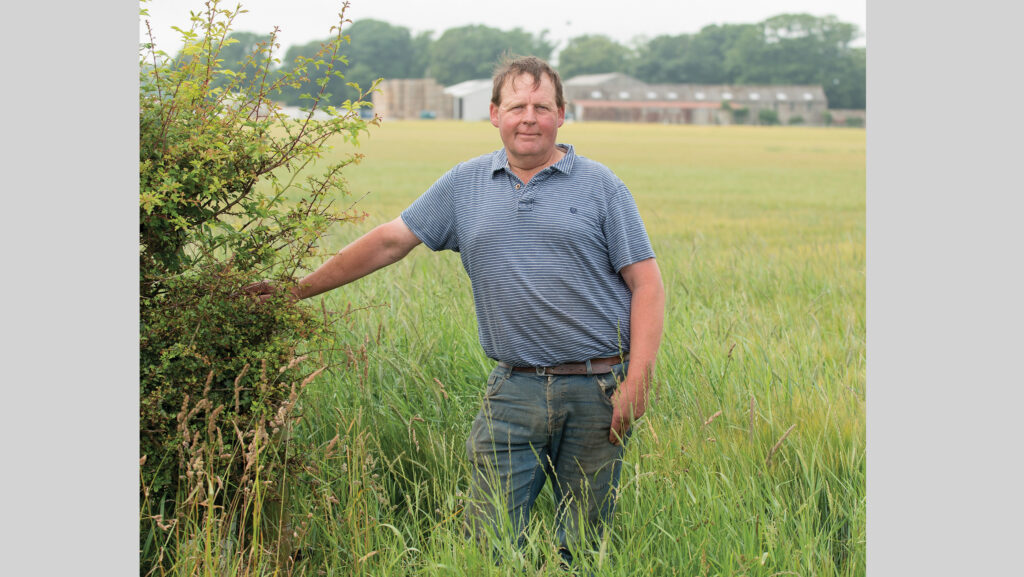
Alan Steven © Angus Findlay
In Fife, Transition farmer and arable grower Alan Steven voices his concern at the difference in approaches taken by the devolved governments.
Alan says there is no longer a level playing field for inputs such as cover crop seeds.
The increased uptake of Sustainable Farming Incentive options in England means English farmers and growers have financial support and, therefore, an advantage when buying cover crop seed, he suggests.
Other grants and schemes are distorting the market. Machinery prices are set UK-wide – but regional grants mean a grower in one area will be able to invest, while another is priced out of the market.
He also says policymakers and buyers need to better appreciate practical factors such as changing weather when developing schemes and setting prices.
“The weather has again been the biggest player in past year. The governments seem to forget we can’t control the weather, and so we need to invest in drainage and irrigation.
“Schemes that better reflect that would help,” he says.
Jonty Armitage, head of farming, Strutt & Parker
These results should send a strong message to the new government about a worrying lack of confidence within the farming sector, says Jonty Armitage.
“It is striking, although not surprising, that only 5% are happy with their government’s long-term vision for farming.
“This reflects one of the main points highlighted in the Farmers Weekly Transition project publication A Future for Farming, that the government needs to paint a much clearer picture of what it believes the agricultural industry should look like moving forward.
“It is also interesting to see the range of actions that people say they are taking to prepare for life without their BPS payment.
“We recognise that making marginal gains in agricultural productivity – or indeed signing up for the SFI– will only be part of the answer in filling the financial gap.
“For some farmers, there may be a need for more fundamental changes in how they run their businesses, which may involve addressing some tough questions.
“A fresh perspective can be invaluable in pinpointing strategic opportunities throughout this process.”
Transition farmers: Richard and Rachel Risdon
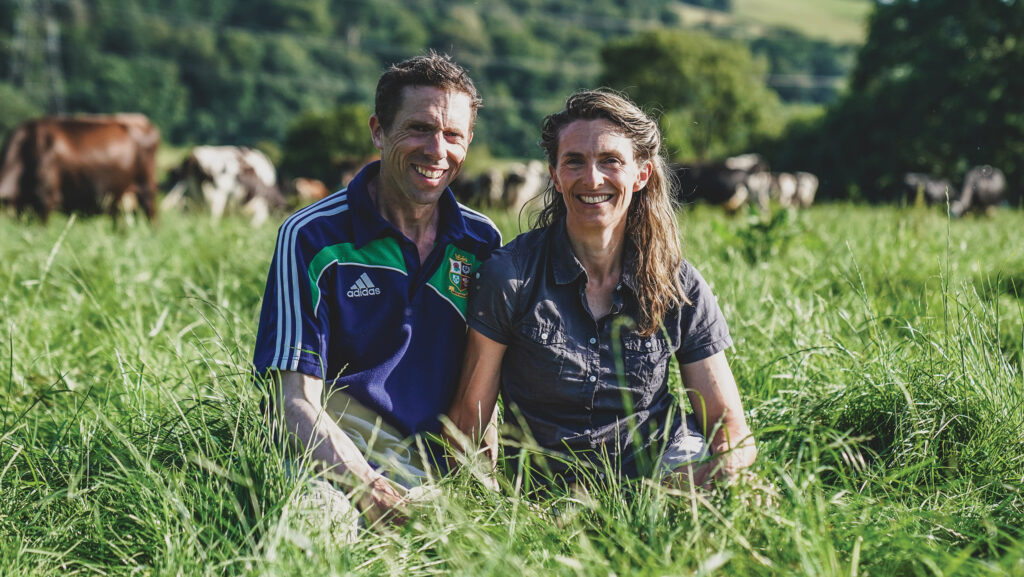
Richard and Rachel Risdon © Emily Fleur
Devon dairy farmers Richard and Rachel Risdon have enrolled with the Sustainable Farming Incentive and the more recent SAM3 herbal ley offering.
“Enrolling seemed to be fairly easy and well paid for us,” says Rachel.
“However, with the various options, we don’t enjoy having to remember what you can and can’t do in each field at any particular time of year.”
The Risdons are Arla farmers and have done the Arlagarden Climate Check – now named “FarmAhead” – for three years.
“We have also used Agrecalc as part of the Leaf net-zero project that we are in, and found this fairly easy to fill in.”
They have had a brief look at carbon schemes, but one farm consultant informed them that he didn’t believe any dairy farmer could ever be genuinely carbon neutral.
“We are doing what we can to farm efficiently – as most others are – because that improves our carbon footprint. But primarily, it’s because it improves our profitability,” says Rachel.
She says to improve their carbon status beyond this is difficult.
“Even with the one-to-one advice through the Leaf net-zero project, we are struggling to go further as there is little to no financial gain, and certain options require investments that are well beyond us as tenant farmers.”
